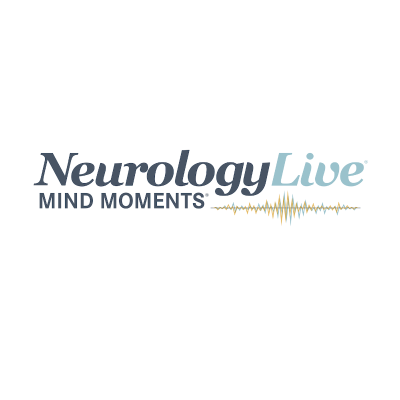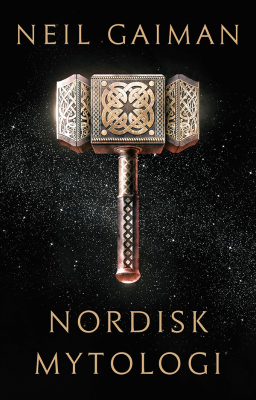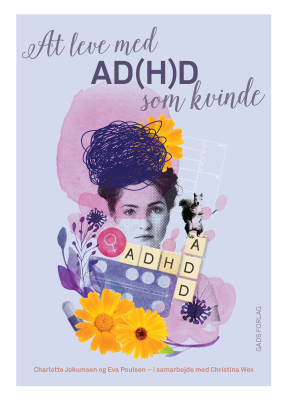
NeurologyLive® Mind Moments®
Podcast by NeurologyLive
Mind Moments®, a podcast from NeurologyLive®, brings you exclusive interviews with experts in neurologic disorders. Listen in to hear the latest clinical and research updates from major medical conferences, as well as insights on the management of complex disorders, including epilepsy, migraine, Alzheimer disease, stroke, multiple sclerosis, Parkinson disease, and more. For more expert insight into neurology, visit NeurologyLive.com.
Limited Offer
3 months for 9,00 kr.
Then 99,00 kr. / monthCancel anytime.
All episodes
161 episodesWelcome to the NeurologyLive® Mind Moments® podcast. Tune in to hear leaders in neurology sound off on topics that impact your clinical practice. In this episode, "Differentiating Dravet and Lennox-Gastaut: Diagnosis, Research, and What’s Ahead," Joseph Sullivan, MD, director of the Pediatric Epilepsy Center at UCSF, joins Mind Moments to discuss the clinical distinctions between Dravet syndrome and Lennox-Gastaut syndrome (LGS). Sullivan outlines the unique diagnostic profiles, seizure presentations, and genetic underpinnings of each disorder, while also addressing how genetic testing has transformed the approach to Dravet syndrome in particular. He speaks on the future of targeted therapies, highlighting ongoing research in disease-modifying treatments and n-of-1 trials, especially for ultra-rare epilepsies. Additionally, Sullivan explores how the clinical trial landscape is evolving—emphasizing the need for biomarkers, innovative trial design, and better tools for seizure monitoring to improve outcomes in these complex pediatric epilepsies. Looking for more Epilepsy discussion? Check out the NeurologyLive® Epilepsy clinical focus page [https://www.neurologylive.com/clinical/epilepsy]. Episode Breakdown: * 1:00 – Key differences in phenotype and diagnosis between Dravet syndrome and LGS * 3:00– The evolution of genetic testing and how it’s improved Dravet diagnosis and outcomes * 5:25 – Opportunities and limitations in scaling genetic testing more broadly * 6:35 – Neurology News Minute * 8:45 – Research pipelines: disease-modifying therapies, n-of-1 trials, and future directions * 10:20 – Innovations in clinical trial design and the need for better seizure monitoring and biomarkers The stories featured in this week's Neurology News Minute, which will give you quick updates on the following developments in neurology, are further detailed here: * EUROPEAN COMMISSION APPROVES EFGARTIGIMOD SUBCUTANEOUS INJECTION FOR FORMS OF CIDP [https://www.neurologylive.com/view/european-commission-approves-efgartigimod-subcutaneous-injection-forms-cidp] * FDA GREENLIGHTS EXPANDED INDICATION FOR VIZAMYL IN ALZHEIMER DISEASE DIAGNOSIS [https://www.neurologylive.com/view/fda-greenlights-expanded-indication-vizamyl-alzheimer-disease-diagnosis] * GRACE THERAPEUTICS SUBMITS NDA FOR GTX-104 TO TREAT ANEURYSMAL SUBARACHNOID HEMORRHAGE [https://www.neurologylive.com/view/grace-therapeutics-submits-nda-gtx-104-treat-aneurysmal-subarachnoid-hemorrhage] Thanks for listening to the NeurologyLive® Mind Moments® podcast. To support the show, be sure to rate, review, and subscribe wherever you listen to podcasts. For more neurology news and expert-driven content, visit neurologylive.com [http://neurologylive.com/].
Welcome to the NeurologyLive® Mind Moments® podcast. Tune in to hear leaders in neurology sound off on topics that impact your clinical practice. In this episode, "Bemdaneprocel and the Future of Cell Therapy in Parkinson Disease" Rajesh Pahwa, MD, director of the Parkinson’s Disease and Movement Disorder Center at the University of Kansas Medical Center, discusses the phase 3 exPDite-2 trial evaluating bemdaneprocel, an investigational cell therapy for Parkinson disease (PD). Pahwa explains the rationale behind cell replacement therapy as a means to restore dopamine production, outlining the progression from fetal tissue implants to stem cell–derived dopaminergic neurons. He details key elements of the study design, including patient selection criteria, trial endpoints, and long-term goals. Reflecting on decades of research in this space, he emphasizes the potential impact of a one-time, hardware-free surgical option and how this novel approach could complement or shift the current treatment landscape. While many questions remain, Pahwa highlights the promise of bemdaneprocel as a next-generation option in Parkinson care. Looking for more Movement disorder discussion? Check out the NeurologyLive® Movement disorder clinical focus page [https://www.neurologylive.com/clinical/movement-disorders]. Episode Breakdown: * 1:00 – Mechanism and rationale behind bemdaneprocel as a dopaminergic cell therapy * 3:00– Key design considerations for conducting a registrational phase 3 cell therapy trial * 5:25 – Trial structure, eligibility criteria, and ongoing patient recruitment * 6:35 – Neurology News Minute * 8:45 – Significance of reaching phase 3 with a cell therapy in Parkinson disease * 10:20 – Future role of cell therapy within the Parkinson disease treatment landscape * 12:10 – Unique aspects of the exPDite-2 trial and what sets it apart from earlier efforts The stories featured in this week's Neurology News Minute, which will give you quick updates on the following developments in neurology, are further detailed here: * BTK INHIBITOR FENEBRUTINIB DEMONSTRATES LONG-TERM SUPPRESSION OF MS ACTIVITY IN OPEN-LABEL EXTENSION [https://www.neurologylive.com/view/btk-inhibitor-fenebrutinib-demonstrates-long-term-suppression-ms-activity-open-label-extension] * REGENXBIO REPORTS POSITIVE PHASE 1/2 DATA FOR HIGHER DOSE OF RGX-202 IN DUCHENNE MUSCULAR DYSTROPHY [https://www.neurologylive.com/view/positive-phase-1-2-data-higher-dose-rgx-202-duchenne-muscular-dystrophy] * NEWAMSTERDAM PHARMA REPORTS POSITIVE TOPLINE DATA OF ALZHEIMER AGENT OBICETRAPIB FROM PHASE 3 BROADWAY TRIAL [https://www.neurologylive.com/view/newamsterdam-pharma-reports-positive-topline-data-obicetrapib-phase-3-broadway-trial-ad] Thanks for listening to the NeurologyLive® Mind Moments® podcast. To support the show, be sure to rate, review, and subscribe wherever you listen to podcasts. For more neurology news and expert-driven content, visit neurologylive.com [http://neurologylive.com/].
Welcome to the NeurologyLive® Mind Moments® podcast. Tune in to hear leaders in neurology sound off on topics that impact your clinical practice. In this episode, "World MS Day: Raising Awareness, Evolving Care, and Empowering Patients," Taylor Hess, MD, a multiple sclerosis specialist at the Michigan Institute for Neurological Disorders (MIND), shares insights in recognition of World MS Day. She reflects on the importance of raising global awareness for MS, the need for equitable care, and the evolving focus of research and treatment. Dr. Hess discusses underrecognized symptoms like fatigue and cognitive dysfunction, and emphasizes the value of the upcoming diagnostic criteria update in enabling earlier intervention. She highlights key research priorities—including progressive MS, symptom management, and remyelination—and speaks to the importance of holistic, lifestyle-informed care. Finally, she shares advice for clinicians on how to communicate a new MS diagnosis with empathy, clarity, and empowerment. Looking for more multiple sclerosis discussion? Check out the NeurologyLive® Multiple sclerosis clinical focus page [https://www.neurologylive.com/clinical/ms]. Episode Breakdown: * 1:00 – Significance of World MS Day and the importance of global MS awareness * 2:05– Commonly recognized vs overlooked MS symptoms in patient care * 3:10 – Transitioning to updated MS diagnostic criteria and the need for global provider education * 4:15 – Neurology News Minute * 6:30 – Research priorities: progressive MS, symptom management, and remyelination strategies * 7:35 – The role of lifestyle, risk factor control, and holistic care in MS management * 8:50 – Communicating MS diagnosis with empathy, support, and resource guidance The stories featured in this week's Neurology News Minute, which will give you quick updates on the following developments in neurology, are further detailed here: * FDA APPROVES FIRST AUTOINJECTOR FORM OF DHE FOR ACUTE MIGRAINE AND CLUSTER HEADACHE [https://www.neurologylive.com/view/fda-approves-first-autoinjector-form-dhe-acute-migraine-cluster-headache] * FDA CLEARS LUMIPULSE PLASMA RATIO AS FIRST BLOOD TEST FOR DIAGNOSING ALZHEIMER DISEASE [https://www.neurologylive.com/view/fda-clears-lumipulse-plasma-ratio-first-blood-test-diagnosing-alzheimer-disease] * ONCE-DAILY ORAL PILL FOR OBSTRUCTIVE SLEEP APNEA SHOWS PROMISING PHASE 3 RESULTS, PAVING WAY FOR FDA SUBMISSION [https://www.neurologylive.com/view/once-daily-oral-pill-obstructive-sleep-apnea-shows-promising-phase-3-results-paving-way-fda-submission] Thanks for listening to the NeurologyLive® Mind Moments® podcast. To support the show, be sure to rate, review, and subscribe wherever you listen to podcasts. For more neurology news and expert-driven content, visit neurologylive.com [http://neurologylive.com/].
Welcome to the NeurologyLive® Mind Moments® podcast. Tune in to hear leaders in neurology sound off on topics that impact your clinical practice. In this episode, "Refining TSC Care: Phenotyping, Clustering, and Clinical Impact," Ajay Gupta, MD, director of the Tuberous Sclerosis Program at Cleveland Clinic, discusses recently published research that used unsupervised clustering to group over 900 patients with tuberous sclerosis complex (TSC) into four clinically meaningful phenotypic clusters. He outlines the distinct traits of each cluster—ranging from tumor risk to cognitive impairment—and explains how variant-specific genetic data helped reinforce these categories. Gupta, who also serves as a professor of neurology at the Cleveland Clinic Lerner School of Medicine, also explores the clinical value of these findings for surveillance planning, early intervention, and future therapeutic trials. He emphasizes that while overlap between clusters exists, this approach lays essential groundwork for precision care and more targeted research in TSC. Looking for more epilpesy discussion? Check out the NeurologyLive® Epilepsy clinical focus page [https://www.neurologylive.com/clinical/epilepsy]. Episode Breakdown: * 1:00 – Study goals and the shift from genotype-to-phenotype toward phenotype-to-genotype mapping * 2:40– Overview of the 4 main phenotypic clusters identified in the TSC population * 8:05 – Genetic domain associations and their impact on clinical monitoring and treatment * 11:50 – Neurology News Minute * 14:45 – Understanding overlap between clusters and avoiding overprediction in clinical settings * 17:00 – Implications for future surveillance strategies and precision candidate selection in TSC trials The stories featured in this week's Neurology News Minute, which will give you quick updates on the following developments in neurology, are further detailed here: * FDA ADCOMM PLANS TO REVIEW INVESTIGATIONAL CELL THERAPY DERAMIOCEL FOR DMD CARDIOMYOPATHY [https://www.neurologylive.com/view/fda-adcomm-plans-review-investigational-cell-therapy-deramiocel-dmd-cardiomyopathy] * GENE THERAPY AAV-GAD GAINS REGENERATIVE MEDICINE ADVANCED THERAPY DESIGNATION AS POTENTIAL PARKINSON TREATMENT [https://www.neurologylive.com/view/gene-therapy-aav-gad-gains-regenerative-medicine-advanced-therapy-designation-potential-parkinson-treatment] * MICROBIOME-TARGETING THERAPY MAAT033 CONTINUES TO SHOW PROMISE IN FINAL PHASE 1 READOUT [https://www.neurologylive.com/view/microbiome-targeting-therapy-maat033-continues-promise-final-phase-1-readout] Thanks for listening to the NeurologyLive® Mind Moments® podcast. To support the show, be sure to rate, review, and subscribe wherever you listen to podcasts. For more neurology news and expert-driven content, visit neurologylive.com [http://neurologylive.com/].
Welcome to the NeurologyLive® Mind Moments® podcast. Tune in to hear leaders in neurology sound off on topics that impact your clinical practice. In this episode, "Down Syndrome and Alzheimer’s: Clinical Trials, Equity, and Patient-Centered Progress," Elizabeth Head, PhD, professor in the department of Pathology and Laboratory Medicine at the University of California, Irvine, discussed the evolving intersection of Down syndrome and Alzheimer disease using updates from the Alzheimer Biomarker Consortium – Down Syndrome (ABC-DS). She detailed how outcome assessments have been refined to meet the unique cognitive profiles of individuals with Down syndrome and shared the progress in launching clinical trials that now include this historically excluded population. Head also addressed the challenges in distinguishing developmental delay from early dementia symptoms, the potential role of anti-amyloid therapies, and how non-pharmacological interventions like sleep apnea treatment may contribute to cognitive preservation. She emphasized the importance of equitable research participation, clinician education, and understanding patient priorities—like independence and respect—when supporting individuals with Down syndrome and their families. Looking for more Alzheimer disease/dementia discussion? Check out the NeurologyLive® Alzheimer disease/dementia clinical focus page [https://www.neurologylive.com/clinical/dementia-alzheimer]. Episode Breakdown: * 1:00 – Overview of the ABC-DS initiative and the growing inclusion of Down syndrome in Alzheimer research * 2:00– Current state of clinical trials and progress in therapeutic development for this population * 3:30 – Evolution of outcome assessments tailored for individuals with Down syndrome * 5:40 – Challenges in distinguishing Down syndrome traits from signs of early dementia * 7:40 – Clinician educations needs and improving access to specialized care * 9:00 – Neurology News Minute * 11:00 – Eligibility and considerations for anti-amyloid therapies in Down syndrome * 13:35 – Research gaps, co-occurring conditions, and the importance of reaching underserved populations * 16:40 – Top priorities from patients and families: independence, inclusion, and respect in care settings The stories featured in this week's Neurology News Minute, which will give you quick updates on the following developments in neurology, are further detailed here: * GENERATION HD2 TRIAL OF HUNTINGTON AGENT TOMINERSEN AMENDED TO INCLUDE ONLY HIGHER DOSE [https://www.neurologylive.com/view/generation-hd2-trial-huntington-agent-tominersen-amended-include-only-higher-dose] * FDA GRANTS AUTHORIZATION TO EPIMINDER’S IMPLANTABLE CONTINUOUS EEG MONITOR FOR EPILEPSY TREATMENT [https://www.neurologylive.com/view/fda-grants-authorization-epiminder-implantable-continuous-eeg-monitor-epilepsy-treatment] * FDA APPROVES FCRN BLOCKER NIPOCALIMAB FOR BROAD FORMS OF GENERALIZED MYASTHENIA GRAVIS [https://www.neurologylive.com/view/fda-approves-fcrn-blocker-nipocalimab-broad-forms-generalized-myasthenia-gravis] Thanks for listening to the NeurologyLive® Mind Moments® podcast. To support the show, be sure to rate, review, and subscribe wherever you listen to podcasts. For more neurology news and expert-driven content, visit neurologylive.com [http://neurologylive.com/].
Limited Offer
3 months for 9,00 kr.
Then 99,00 kr. / monthCancel anytime.
Exclusive podcasts
Ad free
Non-Podimo podcasts
Audiobooks
20 hours / month

































